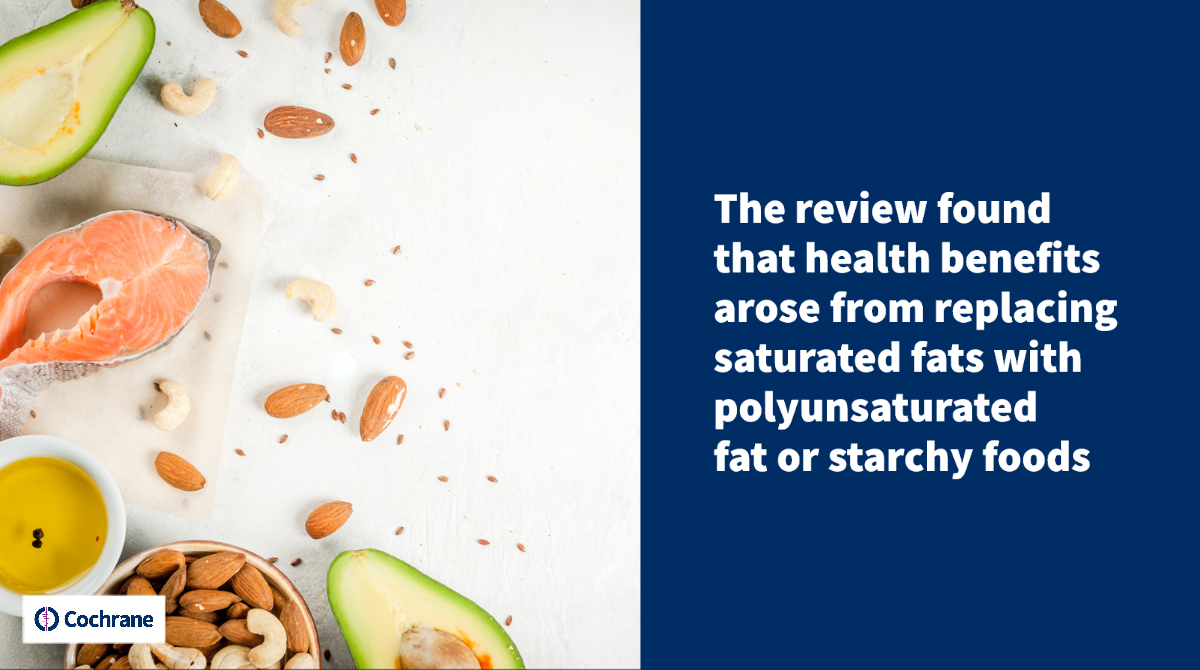
Health guidance suggests that reducing the amount of saturated fat we eat, by cutting down on animal fats, is good for our health.
In the process of updating this review the authors wanted to know whether following this advice leads to a reduced risk of dying or getting cardiovascular disease (heart disease or stroke). They assessed the effect of replacing animal fats and hard vegetable fats with plant oils, unsaturated spreads or starchy foods, for at least two years, on health outcomes including dying, heart disease and stroke. They only looked at studies of adults (18 years or older). They included men and women with and without cardiovascular disease. They did not include studies of acutely ill people or pregnant or breastfeeding women.
The review authors found 15 studies with more than 59,000 participants. The review found that cutting down on saturated fat led to a 21% reduction in the risk of cardiovascular disease (including heart disease and strokes) but had little effect on the risk of dying. The review found that health benefits arose from replacing saturated fats with polyunsaturated fat or starchy foods. The greater the decrease in saturated fat, and the more serum total cholesterol is reduced, the greater the protection from cardiovascular events. People who are currently healthy appear to benefit as much as those at increased risk of heart disease or stroke (people with high blood pressure, high serum cholesterol or diabetes, for example), and people who have already had heart disease or stroke. There was no difference in effect between men and women.

This means that, if 56 people without cardiovascular disease, or 32 people who already have cardiovascular disease, reduce their saturated fat for around four years, then one person will avoid a cardiovascular event (heart attack or stroke) that they would otherwise have experienced.
There is a large body of evidence assessing effects of reducing saturated fat for at least two years. These studies suggest that reducing saturated fat reduces our risk of cardiovascular disease. The review authors rated the quality of the evidence as moderate.
The evidence is current to October 2019.
- Read the review
- Read the review in Malay
- Cochrane Review on Saturated fats included in report published by Public Health England
- Learn more about Cochrane Heart

